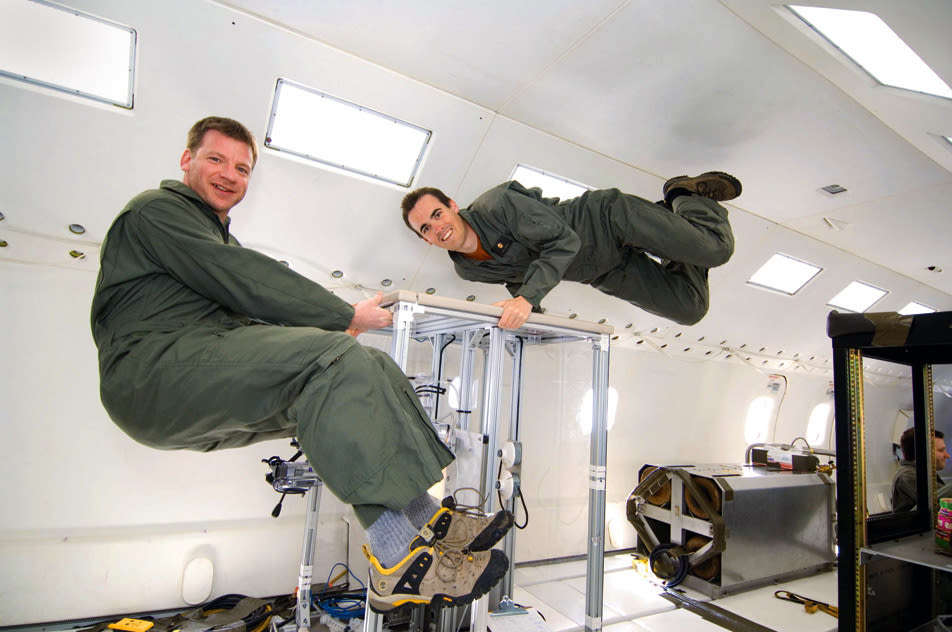Trading Spaces

Image: NASA courtesy Evan Thomas
As a NASA engineer, Evan Thomas managed the design of a $10 million unit to monitor the International Space Station’s endlessly recycled water. (“Today’s coffee becomes tomorrow’s coffee,” he says.) One might think that leaves Thomas, director of Portland State University’s new Sustainable Water, Energy, and Environmental Technologies (SWEET) Lab, overqualified to make humble cook stoves for use in rural Africa. But the 27-year-old, who has also worked with the aid group Engineers Without Borders, says the opposite: “I was a stronger NASA engineer because I developed technologies that had immediate application here on Earth.”
Thomas says that SWEET, founded last October, adapts the “technical philosopysimple, robust, and sustainablehe applied to deep space for the problems of the remote developing world. This spring, the lab will participate in several projects, ?including a $26 million plan to distribute ultra-simple water filters called LifeStraws to four million Kenyans.
The PSU lab collaborates with Manna Energy, a for-profit company Thomas co-founded in 2007. Manna’s water treatment projects, biogas generators, and efficient stoves improve livesand cut carbon emissions, thus earning money on the international CO2-trading market. (A credit for the right to emit a ton of carbon fetches between $6 and $14.) A Rwandan project using solar-powered water purifiers designed to work at low pressure aims to generate more than $8 million (on start-up funds of $1.5 million) and provide clean drinking supplies for 75,000 people.
At SWEET, Thomas will lead research and development of technology Manna will deploy. He says Portland’s sustainability ethos makes this the perfect (if earthbound) place to pursue his work. Thomas still does NASA jobs on the side, but as far as trading the space agency’s Houston HQ for Portland goes, he says, “Let’s just say I appreciate that there are mountains here.”
—With reporting by Anne Adams



